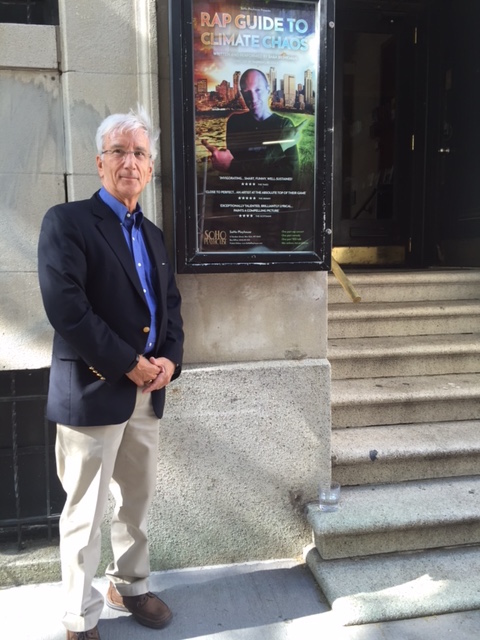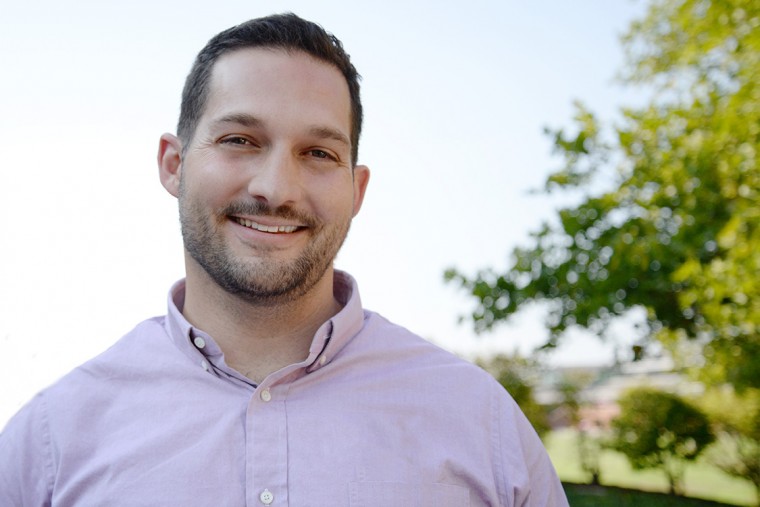John Bonin, the Chester D. Hubbard Professor of Economics and Social Science, and his former student Dana Louie ’15, are authors of a new paper published in Journal of Comparative Economics titled, “Did foreign banks stay committed to emerging Europe during recent financial crises?” In the paper, Bonin and Louie investigate the behavior of foreign banks with respect to real loan growth during times of financial crisis for a set of countries where foreign banks dominate the banking sectors. The paper focuses on eight countries that are the most developed in emerging Europe and the behavior of two types of banks:…
Associate Professor of Economics Abigail Hornstein and James Hounsell '11 are the authors of a new paper published in The Journal of Economics and Business titled "Managerial investment in mutual funds: Determinants and performance implications." In the paper, Hornstein and Hounsell examine what determines managerial investments in mutual funds, and the impacts of these investments on fund performance. By using panel data they show that investment levels fluctuate within funds over time, contrary to the common assumption that cross-sectional data are representative. Managerial investments reflect personal portfolio considerations while also signaling incentive alignment with investors. The impact of managerial investment on performance…
Gary Yohe, the Huffington Foundation Professor of Economics and Environmental Studies, made his off-Broadway debut in the TED-talk segment of "Rap Guide to Climate Change," written and performed by Baba Brinkman and directed by Darren Lee Cole, at the SoHo Playhouse in New York City on May 29. In this one-man show, running from February through July, Brinkman breaks down the politics, economics, and science of global warming, following its surprising twists from the carbon cycle to the global energy economy. Yohe was invited to be the climate expert for the TED-talk segment in the middle of the show. He spent…
Assistant Professor of Economics Karl Boulware recently presented research at the 24th Symposium of the Society of Nonlinear Dynamics and Econometrics, held March 10-11 at the University of Alabama. Boulware presented a paper titled, "Monetary Policy Surprises and the Shadow Bank Lending Channel: Evidence from the Fed Funds Futures Market" during a session on Monetary and Government Policy. The project is a refinement of research started by Kota Uno '16 during a QAC Summer Apprenticeship with Boulware.
In its recent meeting, the Board of Trustees conferred tenure on eight faculty members, effective July 1, 2015. They are: Associate Professor of Sociology Robyn Autry, Associate Professor of Government Sonali Chakravarti, Associate Professor of Molecular Biology and Biochemistry Amy MacQueen, Associate Professor of Music Paula Matthusen, Associate Professor of Molecular Biology and Biochemistry Rich Olson, Associate Professor of Mathematics Christopher Rasmussen, Associate Professor of Economics Damien Sheehan-Connor, and Associate Professor of Classics Eirene Visvardi. Brief descriptions of their research and teaching appear below: Associate Professor Autry is a cultural sociologist with broad interests in collective identity, memory, and visual culture. Her…
Ramanan Sivalingam ’10, vice president at Deutsche Bank, was named to Forbes magazine's “30 under 30” list in finance—a young professional who is “influencing money flows in the global economy.” An economics and East Asian studies double major at Wesleyan, he continued his high school exploration of the Chinese language, as well as his burgeoning interest in the stock market, which soon became a passion. He began trading stocks independently and also took a leadership role in Wesleyan’s undergraduate investment group with Mike Levin ’09, who now works for the top-ranked auto research team at Deutsche Bank. After graduation, Sivalingam accepted…
The Allbritton Center for the Study of Public Life will host a series of three panels in February and March on the refugee crisis. All events will take place in PAC 001. The first panel, The Development of the Crisis and the Response in Europe, will be held at 7 p.m. Feb. 3. Moderated by Professor of Economics Richard Grossman, the panel is comprised of Bruce Masters, the John E. Andrus Professor of History; Robert Ford, former U.S. ambassador to Syria; and Marcie Patton, professor of politics at Fairfield University. The second panel, The Refugee Experience, will be held at 7 p.m. Feb. 17. Moderated by…
Richard Grossman, professor of economics, and Masami Imai, professor and chair of economics, professor of East Asian studies, are the authors of an article published January 2016 in Explorations in Economic History. The article is titled "Taking the lord's name in vain: The impact of connected directors on 19th century British banks." Grossman and Imai considered the appointment of prominent, well-connected individuals (former members of Parliament and lords) to the boards of directors of banks in pre-World War I Britain, and investigated whether their presence enhanced equity value for bank shareholders. Surprisingly, they found that these individuals actually had negative effects on bank equity returns. The…
Gary Yohe, the Huffington Foundation Professor of Economics and Environmental Studies, appeared on the RT show "Boom Bust" to discuss the impact of climate change on business and the economy. (Yohe's interview begins at 3:45). He was asked what sectors of the economy are being affected the most by the forces of climate change. "Agriculture comes to mind. It's not just hurricanes and extreme precipitation events—although that seems to be happening along the East Coast. Any [real estate or] infrastructure that's located near the coast line or near a river, for that matter, is in increasing vulnerability. But it's more than that. It's [...] agriculture,…
The historic global deal on climate change reached by 190 countries in Paris will help the economy, not hurt it as critics argue, writes Huffington Foundation Professor of Economics and Environmental Studies Gary Yohe in an op-ed in The Hartford Courant. "The evidence in the peer-reviewed economic literature, as well as real experience around the world and in the United States, shows that climate action not only protects public health by reducing pollution, but also protects the economy from extreme weather shocks and other complications that have and will arise from a changing climate. The sooner we act, the more money…
Gary Yohe, the Huffington Foundation Professor of Economics and Environmental Studies, was a guest on WNPR's "Where We Live" to discuss drought and climate change, particularly in light of the climate talks going on in Paris. "Droughts have occurred on every continent. They have occurred certainly in North America—Texas has suffered a severe drought, California has suffered a severe drought," said Yohe. "I'm not sure New England has suffered a severe drought but we are certainly below average in terms of rainfall. One of the things that people in Paris are worried about though, is that not only are drought conditions a source…
In this News @ Wesleyan story, we speak with Jeffrey Naecker, a new member of Wesleyan's Economics Department. Q: Welcome to Wesleyan, Professor Naecker! Where are you from? A: I grew up in beautiful and sunny Pasadena, Calif. I was also educated in California, first doing my bachelor’s degree at Berkeley and then my Ph.D. at Stanford. Wesleyan is my first job after graduate school, and my first experience living on the East Coast. I’m excited to try out this “winter” thing I’ve been hearing about! Q: And what drew you to Wesleyan’s Economics Department? A: I knew throughout graduate school that…



